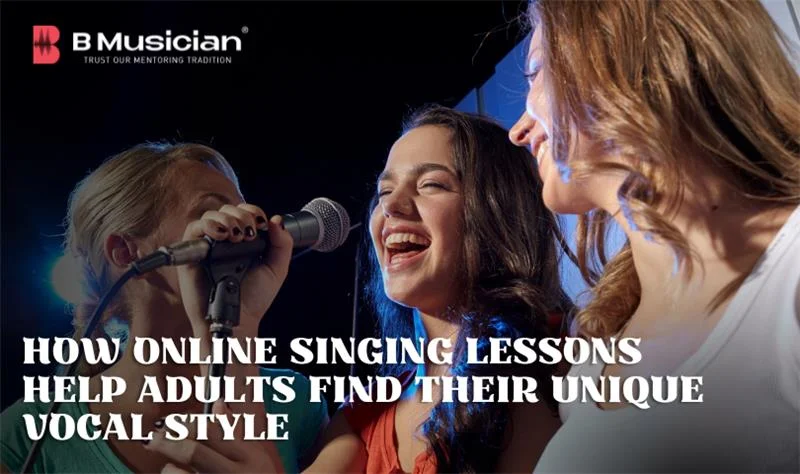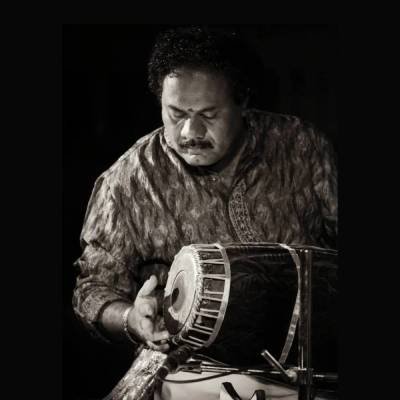Introduction
Discovering and developing a unique vocal style represents one of the most rewarding aspects of adult vocal education, transforming singers from mere imitators into authentic artists with distinctive musical voices. Online singing lessons for adults have revolutionized this journey of vocal self-discovery, providing mature learners with the tools, guidance, and freedom necessary to explore their vocal potential while developing personal artistic expression. Unlike younger students who may still be discovering their musical preferences, adult learners bring life experiences, emotional maturity, and clear artistic goals that create ideal conditions for developing authentic vocal styles. Modern online singing lessons combine traditional vocal pedagogy with innovative teaching methods that honor individual expression while building solid technical foundations, creating pathways for adults to unlock their unique vocal personalities through systematic yet personalized instruction.
The Adult Advantage in Vocal Style Development
Adult learners possess distinct advantages when it comes to developing unique vocal styles through online singing voice lessons. Their mature perspective, life experiences, and established musical preferences create fertile ground for authentic artistic expression that younger students often struggle to achieve.
Emotional Maturity and Life Experience
Adults bring rich emotional experiences that inform their vocal expression in ways that cannot be taught or imitated. This emotional depth provides the foundation for developing authentic vocal styles that reflect personal history, cultural background, and individual artistic sensibilities.
Key Adult Learning Advantages:
- Emotional Depth: Life experiences provide authentic material for vocal expression
- Musical Preferences: Established taste in music guides stylistic development
- Self-Awareness: Understanding personal strengths and artistic goals
- Motivation: Clear reasons for pursuing vocal development and style refinement
Cultural and Personal Identity Integration: Adults often have strong connections to cultural heritage, personal experiences, and musical traditions that can be integrated into their vocal style development, creating unique artistic voices that reflect their individual journeys.
Cognitive Benefits for Style Development
Adult brains excel at pattern recognition, analytical thinking, and connecting musical concepts to personal expression. These cognitive strengths support the complex process of developing unique vocal styles through conscious artistic choices.
Adult Cognitive Advantages:
- Pattern Recognition: Understanding musical structures and stylistic elements
- Analytical Skills: Conscious development of stylistic choices
- Goal-Oriented Learning: Clear objectives for vocal and artistic development
- Integration Abilities: Connecting technical skills to personal expression
Understanding Vocal Style Components
Developing a unique vocal style requires understanding the various elements that contribute to distinctive vocal expression. The best online singing lessons systematically address these components while encouraging personal exploration and artistic development.
Technical Foundation Elements
Vocal Technique as Style Foundation: Solid vocal technique provides the flexibility and control necessary for authentic style development. Without a proper technical foundation, vocal expression remains limited and potentially harmful to vocal health.
Essential Technical Components:
- Breathing and Support: Breath control that supports sustained expression and dynamic variation
- Vocal Range: Development of a comfortable range that allows for stylistic flexibility
- Tone Quality: Understanding how vocal timbre contributes to personal style
- Articulation: Clear diction that serves artistic expression without sacrificing authenticity
Flexibility and Control: Advanced vocal technique allows artists to make creative choices without technical limitations constraining expression. This technical security enables authentic style exploration.
Artistic Expression Elements
Personal Interpretation Skills: Unique vocal style emerges through personal interpretation of musical material, requiring students to move beyond imitation toward authentic artistic expression that reflects their individual perspectives.
Style Development Components:
- Phrasing: Personal approaches to melodic line interpretation and musical timing
- Dynamics: Individual use of volume variations and intensity changes
- Emotional Expression: Authentic conveyance of personal and universal emotions
- Cultural Integration: Incorporation of cultural musical elements and traditions
Genre Integration and Fusion: Modern vocal styles often blend elements from multiple genres, creating unique expressions that reflect individual musical influences and cultural backgrounds.
How Online Singing Lessons Facilitate Style Discovery
Digital vocal education provides unique advantages for adult style development. It offers flexibility, diverse resources, and personalized instruction that support individual artistic exploration while maintaining systematic skill development.
Personalized Learning Approaches
Individual Assessment and Development: Online singing lessons for adults begin with a comprehensive assessment of current abilities, musical preferences, and artistic goals, creating customized learning paths that support personal style development.
Customization Elements:
- Voice Type Recognition: Understanding natural vocal characteristics and optimal development approaches
- Musical Preference Integration: Incorporating preferred genres and artists into lesson planning
- Cultural Background Inclusion: Respecting and integrating cultural musical traditions
- Personal Goal Alignment: Matching instruction to individual artistic aspirations
Flexible Exploration Opportunities: Online formats allow students to explore various vocal styles and techniques at their own pace, recording experiments and receiving feedback on stylistic development without performance pressure.
Diverse Genre Exposure
Multi-Genre Learning Experience: Quality singing voice lessons online expose students to various vocal styles and cultural traditions, providing the broad musical vocabulary necessary for developing unique personal expression.
Genre Exploration Benefits:
- Classical Foundation: Technical precision and breath control from classical training
- Popular Music Styles: Contemporary approaches to melody and rhythm interpretation
- World Music Traditions: Cultural vocal techniques and stylistic elements
- Jazz and Improvisation: Creative expression and spontaneous vocal exploration
Cross-Cultural Integration: Adult learners often benefit from exploring vocal traditions from their cultural heritage while learning contemporary styles, creating fusion approaches that reflect their unique backgrounds.
Technical Skills That Support Style Development
Developing a unique vocal style requires mastery of specific technical skills that provide the foundation for authentic artistic expression. Online singing lessons for beginners and advanced students alike must address these fundamental capabilities.
Breath Control and Support
Advanced Breathing Techniques: Sophisticated breath control enables the sustained phrases, dynamic variations, and emotional expression necessary for distinctive vocal styling without compromising vocal health or clarity.
Breathing for Style Development:
- Sustained Expression: Long phrases that allow for complete artistic statements
- Dynamic Control: Smooth transitions between soft and powerful vocal delivery
- Emotional Support: Breath patterns that enhance rather than constrain expression
- Cultural Techniques: Breathing approaches from various vocal traditions
Style-Specific Applications: Different vocal styles, from the sustained lines of classical music to the rhythmic patterns of contemporary genres, place varying demands on breathing technique.
Vocal Range and Register Development
Full Voice Development: Comprehensive range development provides access to the complete vocal palette necessary for stylistic flexibility and authentic expression across various musical contexts.
Range Development Benefits:
- Expressive Flexibility: Access to various vocal colors and dynamic levels
- Genre Adaptability: Ability to sing in styles that require different range utilization
- Emotional Range: Vocal variety that supports diverse emotional expression
- Performance Confidence: Security across the vocal range that enables artistic risk-taking
Register Integration: Smooth transitions between vocal registers allow for seamless stylistic expression without technical interruptions that compromise artistic flow.
Tone Quality and Timbre Control
Personal Tone Development: Understanding and developing individual vocal timbre characteristics form the foundation of personal vocal style, distinguishing singers from one another through unique tonal qualities.
Timbre Development Elements:
- Natural Voice Recognition: Understanding innate vocal characteristics and optimal development
- Stylistic Adaptation: Modifying tone quality to serve different musical contexts
- Cultural Influences: Incorporating traditional tonal approaches from various cultures
- Personal Expression: Developing signature sounds that reflect individual artistic vision
Advanced Tone Techniques: Sophisticated tone control enables subtle artistic choices that distinguish professional vocal styling from amateur imitation.
The Role of Cultural Heritage in Style Development
For many adult learners, particularly those with diverse cultural backgrounds, integrating heritage musical traditions into contemporary vocal style creates authentic and distinctive artistic expression.
Traditional Vocal Techniques Integration
Cultural Vocal Traditions: Understanding and incorporating traditional vocal techniques from various cultures enriches personal style development while honoring ancestral musical heritage.
Traditional Technique Benefits:
- Unique Tonal Colors: Vocal qualities not found in Western classical or popular traditions
- Rhythmic Sophistication: Complex rhythmic approaches from various cultural traditions
- Emotional Depth: Cultural approaches to emotional expression through voice
- Spiritual Connection: Vocal techniques that connect to cultural and spiritual practices
Contemporary Integration Approaches: Modern vocal styles often successfully blend traditional techniques with contemporary musical contexts, creating fusion styles that honor heritage while remaining relevant to current musical expressions.
Language and Pronunciation Skills
Multilingual Vocal Development: Adult learners often benefit from developing vocal skills in multiple languages, creating stylistic flexibility and cultural authenticity that enhances their unique vocal expression.
Language-Specific Benefits:
- Tonal Variety: Different languages offer various vocal color possibilities
- Rhythmic Patterns: Language-specific rhythm patterns that influence musical phrasing
- Cultural Authenticity: Genuine expression in heritage languages and musical traditions
- International Appeal: Ability to perform and connect with diverse audiences
Advanced Stylistic Techniques
As adult students progress in their vocal development, advanced techniques enable sophisticated stylistic expression that distinguishes professional-level singing from amateur performance.
Improvisation and Creative Expression
Spontaneous Vocal Creativity: Private singing lessons online often focus on developing improvisational skills that enable spontaneous creative expression within established musical frameworks.
Improvisation Skill Development:
- Melodic Creativity: Spontaneous melody creation and variation within songs
- Rhythmic Freedom: Flexible timing and rhythm interpretation for personal expression
- Harmonic Understanding: Knowledge of chord progressions that support creative variation
- Cultural Improvisation: Traditional improvisation techniques from various musical traditions
Style-Specific Improvisation: Different musical genres offer various approaches to vocal improvisation, from jazz scat singing to Indian classical music ornamentations.
Ornamentation and Embellishment
Vocal Decoration Techniques: Advanced vocal ornamentation provides tools for personalizing musical interpretation while demonstrating technical mastery and artistic sophistication.
Ornamentation Applications:
- Classical Embellishments: Traditional Western classical vocal ornaments and their applications
- Contemporary Styling: Modern approaches to vocal decoration in popular music
- World Music Ornaments: Traditional embellishment techniques from various cultures
- Personal Signature Elements: Developing individual ornamental approaches that become stylistic signatures
Technology Integration in Style Development
Modern online singing lessons utilize advanced technology to support style development through innovative teaching methods, practice tools, and feedback systems that accelerate artistic growth.
Recording and Analysis Tools
Self-Assessment Technology: Recording capabilities enable students to document their stylistic experiments, analyze progress, and develop critical listening skills essential for style refinement.
Technology Benefits:
- Progress Documentation: Recording stylistic development over time for analysis
- Comparison Studies: Analyzing personal interpretations against professional performances
- Experimental Freedom: Safe space for trying new stylistic approaches without performance pressure
- Feedback Integration: Combining self-assessment with instructor guidance for optimal development
Interactive Learning Platforms
Comprehensive Online Resources: Advanced online learning platforms provide extensive resources for style development, from backing tracks in various genres to cultural music databases that support heritage integration.
Platform Features for Style Development:
- Genre-Specific Resources: Backing tracks, examples, and instructions for various musical styles
- Cultural Music Libraries: Access to traditional music from diverse cultural backgrounds
- Collaboration Tools: Opportunities to work with other musicians and vocalists online
- Performance Platforms: Virtual venues for sharing stylistic development and receiving feedback
Why BMusician Excels in Adult Vocal Style Development
BMusician’s approach to online singing lessons for adults recognizes that mature learners bring unique advantages to vocal style development while requiring instruction methods that honor their experience, goals, and cultural backgrounds.
Adult-Focused Methodology
BMusician’s curriculum acknowledges that adult vocal development differs significantly from children’s music education. It incorporates teaching approaches that leverage mature learning advantages while addressing adult-specific challenges and goals.
Adult-Specific Instruction Features:
- Experience Integration: Teaching methods that incorporate life experiences into vocal expression
- Goal-Oriented Approach: Instruction focused on specific artistic and personal objectives
- Cultural Sensitivity: Respect for diverse cultural backgrounds and heritage integration
- Flexible Learning: Accommodation of adult schedules and learning preferences
Comprehensive Style Development Curriculum
The platform provides systematic instruction that builds technical skills while encouraging personal artistic expression, creating pathways for authentic style development within supportive learning environments.
Curriculum Strengths:
- Technical Foundation: Solid vocal technique that supports stylistic flexibility
- Genre Diversity: Exposure to multiple vocal traditions and contemporary styles
- Personal Expression: Encouragement of individual artistic voice development
- Cultural Integration: Inclusion of diverse musical traditions and heritage elements
Expert Instruction for Style Development
BMusician features accomplished vocal instructors who understand both the technical requirements of vocal development and the artistic processes involved in developing unique personal expression.
Instructor Expertise:
- Professional Performance: Extensive experience across multiple vocal genres and styles
- Teaching Specialization: Understanding of adult learning and style development processes
- Cultural Competence: Familiarity with diverse musical traditions and integration approaches
- Individual Assessment: Ability to recognize and nurture unique vocal characteristics
Advanced Learning Technology for Vocal Artistry
Style-Specific Learning Tools: BMusician’s technology platform provides sophisticated features that support vocal style development through innovative practice tools, recording capabilities, and cultural resource integration.
Technology Integration:
- High-Quality Audio: Superior sound reproduction is essential for subtle stylistic development
- Recording Capabilities: Professional-level recording tools for style experimentation and documentation
- Cultural Resources: Extensive databases of traditional and contemporary vocal examples
- Collaboration Platforms: Opportunities for artistic collaboration and feedback exchange
Creating Your Personal Practice Routine for Style Development
Developing a unique vocal style requires systematic practice approaches that balance technical development with artistic exploration, creating routines that support both skill building and creative expression.
Daily Practice Structure for Style Development
Balanced Practice Approach: Effective vocal style development requires practice routines that address technical skills, repertoire development, and creative exploration in balanced proportions that support overall artistic growth.
Daily Practice Components:
- Technical Warm-up: Vocal exercises that prepare the voice for expressive work
- Repertoire Study: Learning and interpreting songs in various styles and traditions
- Style Exploration: Experimental time for trying new approaches and techniques
- Creative Expression: Improvisation and personal interpretation development
Long-Term Development Planning
Progressive Style Development: A unique vocal style emerges gradually through consistent practice, exposure to diverse musical traditions, and systematic exploration of personal artistic preferences and capabilities.
Development Timeline Considerations:
- Foundation Phase: Building technical skills and exploring basic stylistic elements
- Exploration Period: Experimenting with various genres and cultural traditions
- Integration Stage: Combining influences into personal artistic expression
- Refinement Process: Developing signature elements and professional presentation skills
Overcoming Common Challenges in Style Development
Adult learners often face specific challenges when developing unique vocal styles, from overcoming self-consciousness to balancing technical development with artistic expression.
Self-Consciousness and Perfectionism
Adult Learning Challenges: Adults often struggle with self-consciousness and perfectionist tendencies that can inhibit the experimentation necessary for authentic style development.
Solutions for Self-Consciousness:
- Safe Learning Environment: Online lessons provide privacy for experimental work
- Progressive Challenges: Gradual increase in complexity and performance demands
- Positive Reinforcement: Focus on progress and unique qualities rather than comparison to others
- Cultural Validation: Recognition and celebration of cultural heritage integration
Technical vs. Artistic Balance
Balancing Development Priorities: Students often struggle to balance technical skill development with artistic expression, sometimes focusing too heavily on one aspect at the expense of the other.
Balance Strategies:
- Integrated Learning: Technical exercises that incorporate stylistic elements
- Artistic Application: Immediate application of technical skills to musical interpretation
- Personal Relevance: Technical development that serves individual artistic goals
- Cultural Context: Technical skills taught within culturally relevant musical frameworks
Discover Your Unique Vocal Voice with BMusician Today
Unlock Your Authentic Artistic Expression
Don’t let another day pass wondering about your unique vocal potential. BMusician’s online singing lessons for adults provide the expert guidance, cultural sensitivity, and systematic instruction necessary for discovering and developing your authentic vocal style while building the technical skills that support lifelong vocal health and artistic expression.
Why Choose BMusician for Your Vocal Style Journey
- Adult-Focused Instruction: Teaching methods specifically designed for mature learners and their unique advantages
- Cultural Integration: Respectful incorporation of heritage musical traditions into contemporary style development
- Systematic Approach: Progressive skill building that balances technical development with artistic expression
- Expert Guidance: Professional vocalists who understand both technique and artistry in style development
- Advanced Technology: Recording tools, cultural resources, and practice platforms that accelerate style development
- Personalized Learning: Customized instruction that honors individual goals, preferences, and cultural backgrounds
Frequently Asked Questions (FAQs)
Q: How long does it typically take for adults to develop their unique vocal style?
A: Style development is an ongoing process that begins within the first few months of study and continues evolving throughout a singer’s career. Basic stylistic elements often emerge within 6-12 months of consistent practice, while sophisticated personal style may take 2-5 years to develop fully. BMusician’s systematic approach ensures steady progress in both technical skills and artistic expression.
Q: Can adults learn to sing if they’ve never had formal vocal training?
A: Absolutely! Adult beginners often develop unique vocal styles more effectively than those with rigid early training because they bring fresh perspectives and established musical preferences to their learning. Online singing lessons for adults are specifically designed to work with mature voices and learning styles.
Q: How do online singing lessons compare to in-person instruction for style development?
A: Online lessons offer unique advantages for style development, including recording capabilities for self-analysis, access to diverse cultural resources, and the privacy to experiment without performance anxiety. The key is working with instructors who specialize in adult vocal development and understand online teaching methods.
Q: Can I integrate my cultural musical heritage into contemporary vocal styles?
A: Yes! Many successful artists have created unique styles by blending traditional cultural elements with contemporary music. BMusician’s instructors understand cultural integration and can help you authentically incorporate heritage elements into your developing vocal style.
Q: What if I’m not sure what vocal style I want to develop?
A: Uncertainty about stylistic direction is standard and actually beneficial for exploration. The best online singing lessons expose you to various genres and traditions, helping you discover your natural affinities and preferences. BMusician’s comprehensive approach ensures you explore multiple options before focusing on specific styles.


















